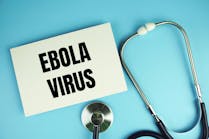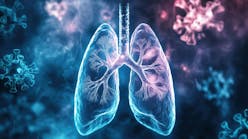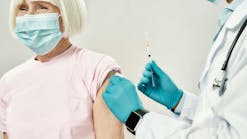A Phase 1 clinical trial evaluating an investigational vaccine designed to protect against coronavirus disease 2019 (COVID-19) has begun at Kaiser Permanente Washington Health Research Institute (KPWHRI) in Seattle.
The National Institute of Allergy and Infectious Diseases, part of the National Institutes of Health, is funding the trial. KPWHRI is part of NIAID's Infectious Diseases Clinical Research Consortium.
The open-label trial will enroll 45 healthy adult volunteers ages 18 to 55 years over approximately six weeks. The first participant received the investigational vaccine on March 16.
The study is evaluating different doses of the experimental vaccine for safety and its ability to induce an immune response in participants. This is the first of multiple steps in the clinical trial process for evaluating the potential benefit of the vaccine.
The vaccine is called mRNA-1273 and was developed by NIAID scientists and their collaborators at the biotechnology company Moderna, based in Cambridge, MA. The Coalition for Epidemic Preparedness Innovations (CEPI) supported the manufacturing of the vaccine candidate for the Phase 1 clinical trial.
"Finding a safe and effective vaccine to prevent infection with SARS-CoV-2 is an urgent public health priority," said NIAID Director Anthony S. Fauci, MD.
More than 2,800 confirmed COVID-19 cases and 58 deaths have been reported in the United States as of March 15, according to the Centers for Disease Control and Prevention (CDC). Currently, no approved vaccines exist to prevent infection with SARS-CoV-2.
The investigational vaccine was developed using a genetic platform called mRNA (messenger RNA). The investigational vaccine directs the body's cells to express a virus protein that researchers hope will elicit a robust immune response. The mRNA-1273 vaccine has shown promise in animal models, and this is the first trial to examine it in humans.
Study participants will receive two doses of the vaccine via intramuscular injection in the upper arm approximately 28 days apart. Each participant will be assigned to receive a 25-microgram (mcg), 100-mcg or 250-mcg dose at both vaccinations, with 15 people in each dose cohort. The first four participants will receive one injection with the low dose, and the next four participants will receive the 100-mcg dose. Investigators will review safety data before vaccinating the remaining participants in the 25- and 100-mcg dose groups and before participants receive their second vaccinations. Another safety review will be done before participants are enrolled in the 250-mcg cohort.





